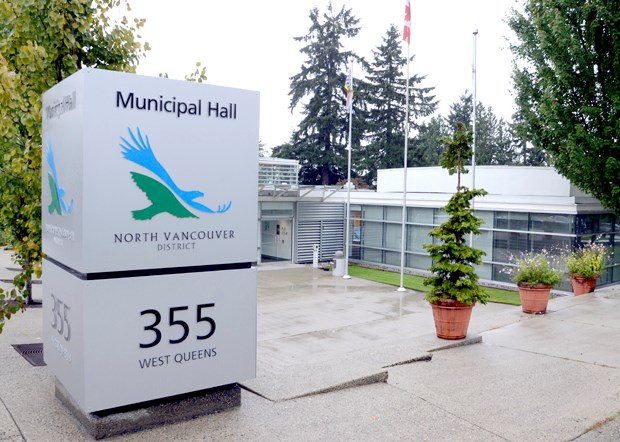While they agree on the need to create low-cost housing, the District of North Vancouver council remains somewhat divided on what they can afford to do in the name of affordability.
History will carry a harsh judgment for elected officials who are feckless in the face of the housing crisis, according to Coun. Jim Hanson, speaking Tuesday at a special meeting of council.
“We’re in danger in North Vancouver District of finding ourselves without a whole class of citizens,” he said.
While council was united on expanding the supply, diversity and affordability of housing – particularly around transit hubs – there was a schism on the topic of selling district-owned, single-family lots.
While he was sympathetic to the reticence of his colleagues, Hanson argued selling some land to fund affordable housing in town centres was justified by the ongoing crisis as well as the fact the district would be acquiring other land, making it more of a trade than a loss.
Coun. Doug MacKay-Dunn said he would sooner borrow money than sell land.
“(Land) is going to do a heck of a lot better than the stock market.”
MacKay-Dunn ultimately supported the option of selling a few district-owned parcels but recommended leasing land to non-profit organizations instead – similar to the arrangements with Turning Point Recovery Centre.
“Once you make that arrangement and you put the land on the table, then the senior governments have a tendency to come to the party with a chequebook.”
The District of North Vancouver is “all over the map” on their vision for affordable housing, according to a very frustrated Coun. Roger Bassam.
“We have no idea what we’re trying to get done here,” he said.
Part of the district’s plan is to work with partners to build family-oriented affordable housing on Oxford Street, in the transit-oriented Lynn Creek town centre slated for major redevelopment – but council’s bickering doesn’t bode well, according to Bassam.
“This first project is literally a drop in the bucket and will do nothing in the large scheme of things to create housing affordability in the market, it will do nothing to provide housing for all the service workers who don’t make enough money to live on the North Shore,” he said.
The district is exploring providing as many as 1,400 rental units over the next decade – although not everyone on council is convinced the municipality can support that much growth.
A recent decision to kibosh a coach house proposal with negligible neighbourhood impact did not inspire confidence in the community’s willingness to take on the housing crisis, according to Bassam
“I don’t think our community cares about affordable housing to a large degree. There’s a small group of people who are being displaced, who are going through tremendous hardship … but I think, by and large, most people in our community don’t care.”
While he didn’t dispute Bassam’s reasoning, Coun. Mathew Bond reminded council of their role as community stewards.
“Whether or not our community cares about this issue, we should care as a council,” he said. “I’d rather move forward with good initiative now … and see something happen, then wait for a perfect plan that may never come.”
Mayor Richard Walton prefaced his comments by saying he disagreed with most of Bassam’s points.
“It’s not just about who’s living here now and it’s not just about the current voters,” he said, explaining the line of cars streaming onto the North Shore each morning rush hour would probably like to live here.
The District of North Vancouver represents about 3.5 per cent of all Metro Vancouver.
“To what extent we’ll be successful … depends on the other 96.5 per cent,” he said.
However, even if council’s measures only make a “small dent” in the problem, Walton said it would be worth it.
The affordability crisis has been exacerbated by “the pace of all this development,” according to Coun. Lisa Muri, who pointed to displaced families at soon-to-be-redeveloped Mountain Court as evidence.
Muri supported putting affordable units in every new development, an idea that received “very tepid support,” from her colleagues on council, she noted.
“We do have the ability to hold the hammer … and require (developers) to put affordable units in town centres,” she said.
While Coun. Robin Hicks stood with Muri in opposing the possible sale of district-owned lots, he disagreed with her on the root of the problem.
“I think it’s totally illogical to think that the pace of development has contributed to the problem. It’s the lack of the pace that has caused the problems,” he said.
Before mentioning that he “better not say” what he really thinks, Hicks wondered if council could truly find a workable solution.
“I think we’re not going to be able to make much of an impact unless we change our thinking on density,” he said.
In order to foster greater affordability, council is examining income-testing potential renters to ensure affordable housing is provided and to negotiate for affordable units in centralized developments.
Council will also negotiate density and height bonuses on a case-by-case basis and incentivize rental and affordable housing by offering parking reductions.



